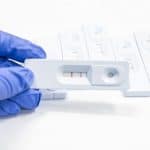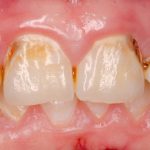Methamphetamine (meth), including crystal meth, is a stimulant and highly addictive drug that can result in dependence and addiction. When you stop taking meth, you will likely experience uncomfortable withdrawal symptoms within the first 24 hours after stopping the drug.
The most severe meth symptoms likely last around a week but meth withdrawal affects everyone differently. If you or a loved one may be addicted to meth, a medical detox program can help you manage difficult symptoms like cravings, depression, and anxiety.
About Meth
Meth is a central nervous system stimulant with side effects similar to amphetamines and cocaine. It is also a Schedule II controlled substance in the United States with a high risk of abuse and dependence.
As a legal prescription drug, it is used to treat attention-deficit hyperactivity disorder (ADHD). It is also sold illegally, in the form of a white powder or as crystal meth. All forms of meth use can lead to addiction and withdrawal symptoms.
Meth Withdrawal Timeline
Long-term substance abuse can lead to the development of methamphetamine dependence. Dependence means that your body has adapted to having the drug in its system. If you suddenly stop, your body may experience a wide range of physical and mental withdrawal symptoms.
When meth is smoked, snorted, or injected, it starts to leave your system about 10-11 hours after it is last used. This is known as a drug’s half-life, which is an important factor in determining when withdrawal symptoms may begin to appear.
Stage 1 (Around 7-10 Days)
Methamphetamine withdrawal symptoms are likely to begin within 24 hours after you stop. The severity of withdrawal varies between people but tends to be worse among older people or those who have used meth long-term.
As a central nervous system stimulant, meth regularly increases heart rate, blood pressure, and helps you feel energized. When you stop, you may begin to feel tired, lethargic, and disinterested in activities.
Some people may experience more severe symptoms, like paranoia or suicidal ideation.
The first stage of acute withdrawal lasts around a week. Symptoms of withdrawal may include:
- fatigue
- anhedonia (unable to feel pleasure)
- depression
- uneasiness
- anxiety
- paranoia
- vivid dreams
- impaired motor skills
- agitation
- difficulty concentrating
- increased appetite
- intense cravings
About 72 hours after you start experiencing initial withdrawal symptoms, you may experience a crash. A meth crash can cause extreme fatigue and you may sleep for an extended period of time.
Following this crash period, you may suddenly experience changes in sleep patterns and develop insomnia.
Stage 2 (Around 14 days)
During the following weeks, symptoms may start to decrease but can linger for 2-3 weeks or longer. You may experience symptoms similar to the first stage, especially sleep difficulties and mood-related symptoms, but to a lesser degree.
Your symptoms may begin to balance out about 3-4 weeks after you stop using meth. If you used other substances or have a co-occurring mental health disorder, your symptoms may be more severe or last longer.
Is Meth Withdrawal Dangerous?
Although meth withdrawal may not cause the same physical symptoms as other drugs, like alcohol or opioids, it is important to seek professional help. Meth withdrawal has a high rate of relapse, especially within the first few days after stopping.
As a stimulant, meth increases dopamine (the pleasure chemical) and other neurotransmitters in the brain, which is why meth is associated with a euphoric rush. When you use meth in binges, it keeps dopamine levels raised and can alter how much of the chemical your brain naturally produces.
This can impact your mental health, especially if you have other mental illnesses along with a substance use disorder (SUD). Stopping meth can cause you to experience depression symptoms, anxiety, and psychosis.
In addition, although suicidal thoughts are not a common withdrawal symptom, they do occur. Depression and suicidal thoughts are serious symptoms and need to be addressed with a supportive medical professional.
Meth Detox
The most effective way to reduce the risk of relapse and severe withdrawal symptoms is to manage withdrawal symptoms in a medical detox center. Inpatient detoxification programs can offer you 24/7 supervision in a safe environment.
During the withdrawal process, your team of professionals may include:
- doctors
- nurses
- psychiatrists
- addiction counselors
- case manager
During detox, healthcare specialists will address your methamphetamine addiction and mental health needs.
You may receive antidepressants and other medications to reduce severe meth withdrawal symptoms. However, there are currently no FDA-approved medications to specifically treat meth addiction.
Meth Addiction Treatment
If you or a loved one becomes addicted to meth, you should consider a residential or outpatient treatment center.
Through evidence-based treatment services, like cognitive behavioral therapy, individual counseling, and peer support groups, you can learn to manage cravings and change unhealthy behaviors.
If you would like to learn about our treatment facility, please reach out to us today.
Sources
- National Institute On Drug Abuse (NIDA) — Methamphetamine DrugFacts
- National Institute On Drug Abuse (NIDA) — What Are The Long-Term Effects Of Methamphetamine Misuse?
- U.S. National Library Of Medicine: PubMed — The Bioavailability Of Intranasal And Smoked Methamphetamine
- U.S. National Library Of Medicine: PubMed — The Nature, Time Course, And Severity Of Methamphetamine Withdrawal
Written by
Northeast Addition Editorial Team
©2024 Northeast Addition Center | All Rights Reserved
This page does not provide medical advice.






